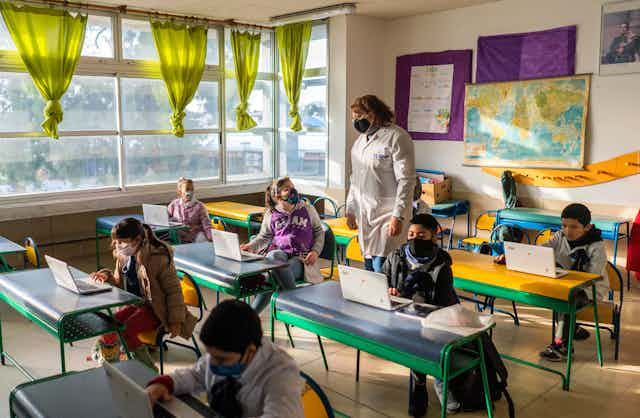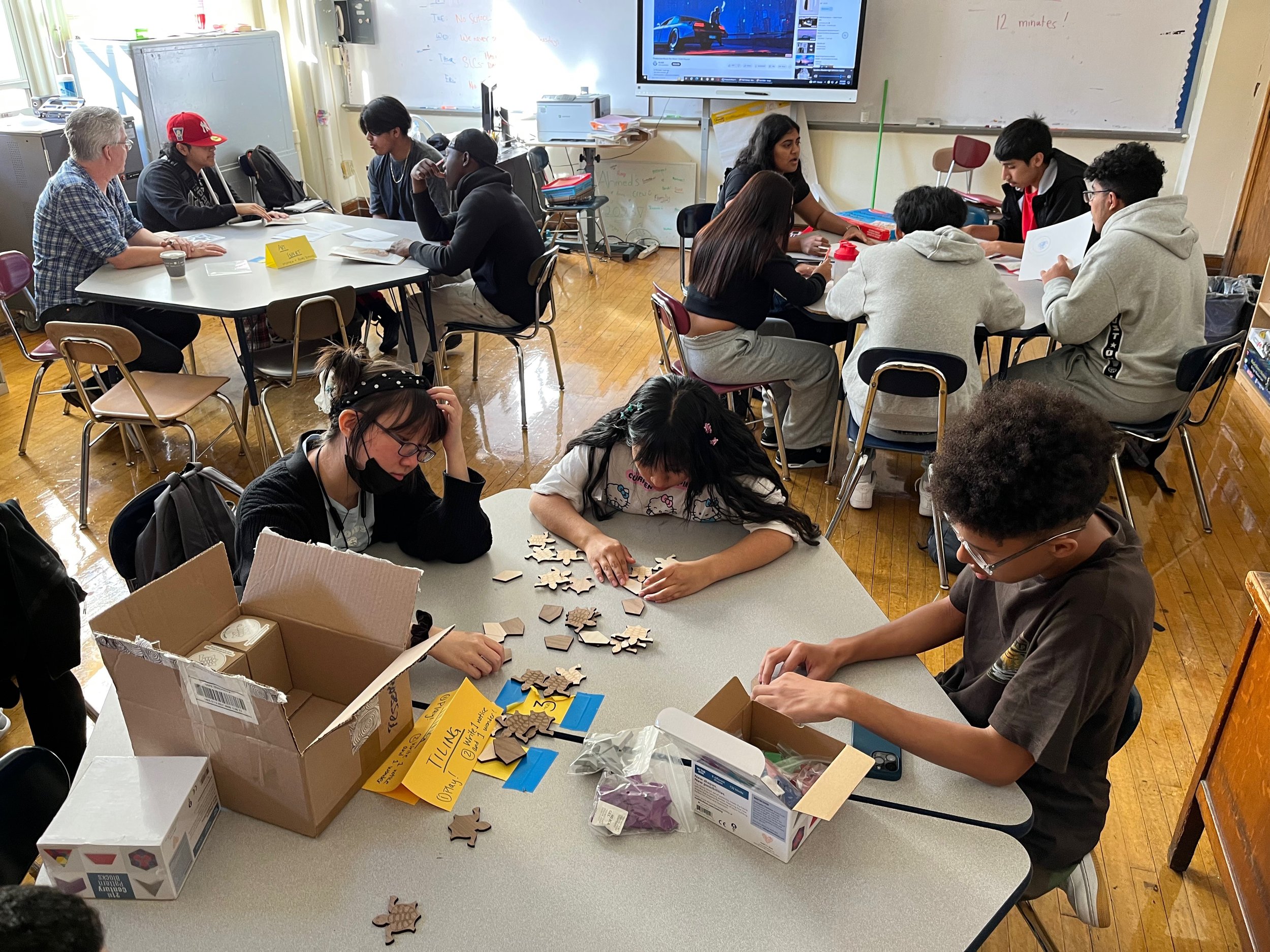Recognizing the Relevance of Institutions in Youngster Growth and Neighborhood Development
Schools work as critical establishments for kid growth and community development, offering settings where academic achievements are matched by the cultivation of social abilities and direct exposure to diverse point of views. These instructional setups not just promote important reasoning and reliable communication however additionally foster empathy through collective jobs. Colleges' involvement with regional communities through service-learning efforts enhances the bond between households and academic institutions. This cooperative relationship underscores the significance of colleges in nurturing active citizenship and lifelong discovering practices. Nevertheless, what are the certain systems through which these institutions accomplish such profound impacts?
Academic Success
Academic accomplishment acts as a keystone of kid development, providing the foundation upon which future knowing and success are constructed. Institutions play a critical role in fostering this academic growth, supplying structured settings where kids can acquire vital expertise and cognitive skills. Standardized educational program make sure that pupils gain efficiency in core subjects such as maths, science, and language arts, which are essential for both greater education and learning and specialist chances.
Along with giving fundamental scholastic skills, institutions also cultivate essential thinking, analytic abilities, and intellectual curiosity. These cognitive proficiencies are vital for navigating complicated real-world scenarios and adapting to the ever-evolving needs of the modern office. Educators, as facilitators of learning, utilize diverse instructional techniques to provide to varied learning styles, therefore maximizing specific pupil potential.
Additionally, academic success is very closely linked to self-worth and motivation. Children who experience academic accomplishments are extra likely to develop a favorable self-concept and a lifelong enthusiasm for discovering. Institutions also provide different sources, such as libraries and innovation, which better boost the instructional experience and prepare pupils for a highly innovative society.
Social Skill Growth
Beyond academic achievement, the role of schools in social ability growth is crucial. Schools offer as a main place for kids to discover and exercise essential social abilities such as conflict, collaboration, and interaction resolution. In the structured environment of a class, pupils connect with peers, instructors, and other school team, supplying numerous opportunities to create these essential abilities.
Efficient social skill growth in colleges is helped with through team tasks, joint tasks, and extracurricular programs. These communications assist students recognize social standards, develop empathy, and cultivate a sense of neighborhood. Group tasks instruct pupils how to function together in the direction of a common goal, listen to various viewpoints, and browse differences constructively.

The growing of social abilities during school years lays a foundation for future personal and professional connections. Save Temecula Schools. As trainees grow, the ability to effectively team up and communicate comes to be progressively crucial, emphasizing the school's critical function in alternative youngster growth
Direct Exposure to Variety
Direct exposure to variety in colleges is basic to cultivating an inclusive way of thinking and expanding pupils' point of views. Schools serve as a microcosm of the more comprehensive culture, and encountering diverse societies, languages, and socioeconomic backgrounds within this atmosphere gears up trainees with vital abilities for browsing an increasingly globalized world. This exposure encourages empathy, lowers bias, and advertises shared official site respect among peers.
Research study indicates that pupils who communicate with peers from diverse backgrounds show much better problem-solving abilities and imagination. This understanding of variety prepares trainees for future workplaces that worth multicultural skills - Save Temecula Schools.

Community Engagement
The benefits of diverse classrooms prolong past the college walls, promoting a strong feeling of area interaction among students. By connecting with peers from different cultural, socioeconomic, and ethnic histories, trainees get a more comprehensive viewpoint and a gratitude for variety. This direct exposure urges them to become active residents who are willing to contribute positively to their communities.
Schools that highlight community involvement often incorporate service-learning tasks, which allow students to address real-world problems while using scholastic skills. These tasks not just improve trainees' understanding of their coursework yet additionally impart a sense of responsibility and empathy. Collaborations between schools and neighborhood organizations give students with possibilities to take part in community occasions, even more strengthening their role as aggressive neighborhood members - Save Temecula Schools.
Additionally, adult and community involvement in institutions strengthens the bond between academic establishments and the areas they serve. With these efforts, institutions play a crucial role in nurturing neighborhood engagement and promoting social development.
Lifelong Knowing Habits
Establishing lifelong discovering behaviors is essential for a youngster's continual growth and versatility in an ever-changing world. Colleges play an essential function in instilling these routines by developing an atmosphere that cultivates curiosity, essential thinking, and a love for knowledge. With extracurricular tasks and varied educational programs, instructors motivate students to explore various subjects, examine information seriously, and use their discovering to real-world circumstances.

In addition, schools supply a structured environment where kids can create self-discipline and time administration abilities, both of which are essential for continuous discovering. By stressing the importance of setting objectives, assessing progress, and adjusting techniques, universities prepare pupils to navigate the complexities of grown-up life, guaranteeing they remain lifelong learners and factors to culture.
Conclusion
In verdict, schools are necessary in cultivating youngster development and community development by giving environments for academic achievement, social ability development, and exposure to diversity. Through collaborative tasks and interactions, schools enhance vital thinking, compassion, and interaction abilities. Area involvement initiatives further reinforce the bond between instructional establishments and neighborhood areas. Eventually, schools grow lifelong discovering behaviors, outfitting individuals with the required understanding and skills to contribute favorably to culture.
In the organized setting of a classroom, pupils communicate with peers, educators, and other college staff, supplying various chances to establish these vital capabilities.
In significance, direct exposure to diversity within colleges not just improves individual trainees but also reinforces the social fabric of the area as a whole.
The advantages of diverse classrooms extend beyond the institution wall website here surfaces, cultivating a solid sense of area involvement amongst trainees.Schools that stress area involvement frequently include service-learning tasks, which allow trainees to address real-world problems while applying academic abilities. Partnerships in between colleges and local organizations offer trainees with opportunities to get involved in community occasions, further solidifying their role as proactive area members.